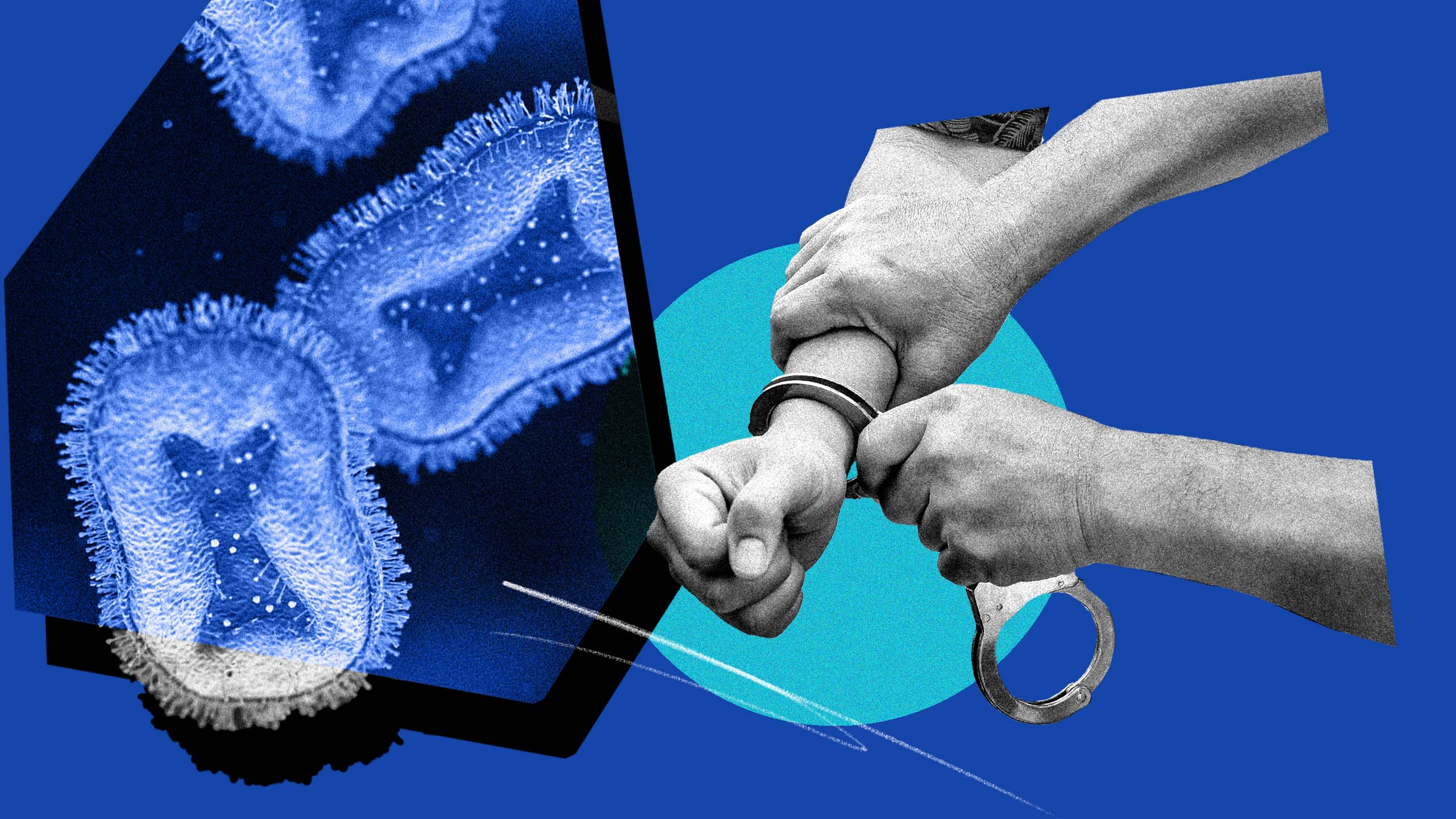The Taliban is reportedly exploiting the monkeypox outbreak to detain and arrest LGBTQ+ people in Afghanistan.
Two gay men living in Kabul told the British queer publication PinkNews that members of the radical insurgent group are using the threat of the virus as a pretext to detain LGBTQ+ people. Maalek, speaking pseudonymously to the outlet, said the policing of LGBTQ+ Afghans is so severe that trans people “cannot even come out of their house because they are arrested immediately.”
Timur, a gay man in Afghanistan who also spoke under a pseudonym, said that he has stopped going outside in fear he will be next. “I’m afraid in Afghanistan. I’m afraid of being arrested by the Taliban,” he told PinkNews. “I’m not leaving home. I’m scared and miserable.”
The reports were confirmed by Nemat Sadat, a gay Afghan author who lives in the United States. In a May 31 tweet, Sadat said the Taliban had been arresting LGBTQ+ people in the capital of Kabul.
“The Taliban are rounding up gay people on the grounds that homosexuals carry monkeypox,” he wrote. “They are singling out pretty men and checking their phones. This operation is happening in the Lycée Mariam, Khairkhana neighbourhood and all the districts of Kabul.”
Typically detected in Central and West Africa, cases of monkeypox began spreading in Europe in early May. Many of the reports have come from gay and bisexual men, but some experts have said the proactive use of sexual health services among these populations may have led to more cases being reported. Moreover, the World Health Organization has clarified that monkeypox isn’t a sexually transmitted infection—rather, its spread can be faciliated by the close contact that sex entails.
This hasn’t stopped the Taliban from using the outbreak to persecute LGBTQ+ people, despite there being few cases of monkeypox in Afghanistan. “The Taliban have no scientific knowledge about the disease, yet they are still looking for excuses to harass the Afghan gay community,” Maalek said.
LGBTQ+ Afghans are experiencing this uptick in arrests in an already intensely dangerous environment.
Although homosexuality had been illegal in Afghanistan before Taliban rule, life for LGBTQ+ people worsened after the militant group seized power in August 2021. A gay man told the U.K. network inews later that month that the Taliban had chopped up his boyfriend’s body to make an example out of him. Dozens of other LGBTQ+ Afghans said they had been attacked, sexually assaulted or threatened by members of the Taliban in a January report from Human Rights Watch.
LGBTQ+ people who try to leave Afghanistan face unique obstacles and risk experiencing even more violence. Lesbian and bisexual women find it almost impossible to flee the country on their own, as the Taliban prohibits women from travelling without male relatives.
The Taliban has gone out of its way to find LGBTQ+ people trying to leave the country, according to itvNews. Hanan, a gay man speaking pseudonymously, was promised a way out of Afghanistan by a Taliban member posing as a courier on social media.
When Hanan agreed to meet the man, he was instead met by two members of the Taliban, who beat and raped him before outing him to his father.
For Maalek, the only path forward has been to repress himself to stay safe.
“I go out in local clothes now,” he said. “I do not bring my smartphone with me when I leave home. I try not to leave home without doing my homework. Their checkpoints are very dangerous.”


 Why you can trust Xtra
Why you can trust Xtra


